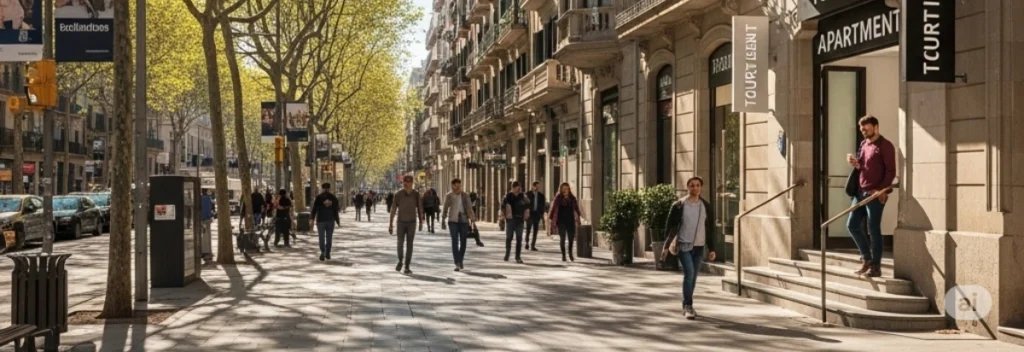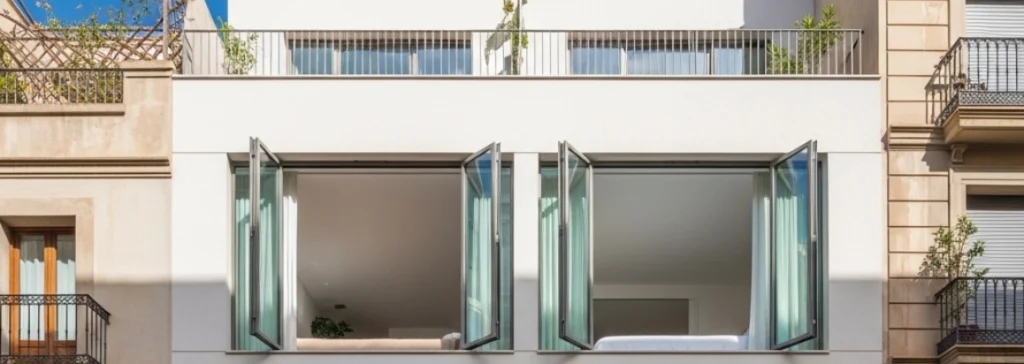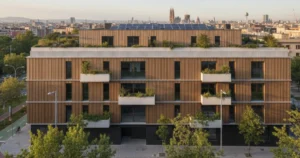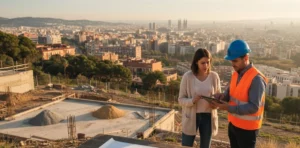Table of Contents
- Introduction: Why are the regulations so relevant?
- What is a tourist apartment according to the regulations?
- Tourist apartment regulations in Barcelona: legal framework
- Requirements for obtaining a tourist apartment license
- Municipal inspections and control
- Recent modifications and forecasts for 2025
- Legal alternatives to annual rentals
- Legal consequences of violating the regulations
- Recommendations for owners
- Official inquiries and useful links
Introduction: Why are the regulations so relevant?
The rise of tourism in Barcelona has led to an exponential growth in the rental of tourist apartments, also known as vacation rentals (VUT). This trend has put significant pressure on the residential housing stock, causing social tensions, rising rental prices, and, in response, increasingly strict regulations from the City Council and the Generalitat (Catalan Government).
Knowing the regulations for tourist apartments in Barcelona is essential for both owners and managers of tourist accommodations. In this article, we explain everything you need to know if you're thinking about renting your property for tourist purposes in 2025.
What is a tourist apartment according to the regulations?
A tourist accommodation (VUT) is a property that is regularly rented, directly or indirectly, for short-term stays in exchange for a fee. Unlike traditional rentals, a tourist apartment does not constitute the tenant's habitual residence.
To be considered legal, a tourist apartment must comply with:
- Be registered in the Catalan Tourism Registry (RTC)
- Have a valid occupancy certificate
- Meet urban planning and safety requirements
Tourist apartment regulations in Barcelona: legal framework
Regional regulations
Regional regulations are the responsibility of the Generalitat of Catalonia. The Catalan Tourism Law and the decrees implementing it establish the general guidelines, such as the obligation to register accommodations, consumer rights, and basic quality standards.
Municipal regulations (PEUAT)
Barcelona City Council approved the Special Urban Development Plan for Tourist Accommodation (PEUAT), a key tool for controlling the concentration of tourist accommodation by area. It establishes:
- Saturated zones where new licenses are not being granted
- Restricted growth zones
- Building density regulations
You can consult the updated official information at the following link:

Requirements for obtaining a tourist apartment license
To operate legally you must meet the following requirements:
- Tourism Registry of Catalonia (RTC): Each floor must have a legal identification number (HUT).
- Valid certificate of habitability: It is essential for any residential or tourist use.
- Municipal license: although new ones are not currently granted in many areas, it is mandatory for existing ones.
In addition, the apartment must be adapted to accessibility and safety regulations, and have an information sheet with internal rules for guests.
Municipal inspections and control
Barcelona City Council conducts regular inspections and also responds to complaints from residents or reviews on platforms such as Airbnb and Booking.
Consequences of operating without a license:
- Fines of up to €60,000
- Forced closure of the business
- Inclusion in the register of offenders
Barcelona has a technological monitoring system to detect illegal tourist apartments by cross-referencing data with booking websites.
Recent modifications and forecasts for 2025
- License moratorium in saturated areas: remains in force and could be extended.
- Limitation of duration of tourist contracts: Limiting tourist rentals to certain periods of the year, such as peak season, is being considered to prevent intensive use throughout the year and protect the residential housing stock.
- Forced closure of the accommodation
- Civil liability in the event of conflicts with neighbors or tourists
Repeat offenders may be excluded from the RTC and ineligible for new licenses.
Legal alternatives to traditional tourist rentals
- PEUAT Review: an update to the plan is expected in 2025 to include new areas and adjust density standards.

Legal consequences of violating the regulations
If you don't comply with the regulations for tourist apartments in Barcelona, you risk:
- High economic sanctions for traditional tourism
Given the current restrictions, there are alternative legal options:
- Seasonal rentals (more than 31 days): regulated as a non-habitual housing lease.
- Room rentals: allowed in many cases, as long as the owner resides in the home.
- Shared housing: valid under certain conditions if residential use rights are not violated.
Recommendations for owners
- Consult with an urban architect before starting any process.
- Check the property's urban planning.
- Evaluate legal alternatives before renting as a VUT.
We invite you to learn about all of our architectural services, licenses, and legalization of homes.
Official inquiries and useful links
- Official website of the Barcelona City Council: https://www.barcelona.cat
- Tourist apartment processing service: https://seuelectronica.ajuntament.barcelona.cat/oficinavirtual/ca/
- Complete PEUAT: https://ajuntament.barcelona.cat/pla-allotjaments-turistics/es
Conclusion and call to action
The regulations for tourist apartments in Barcelona are clear but restrictive. If you own a property you wish to use as a tourist rental or want to regularize a situation, it is essential to follow all legal steps.
Our team offers professional advice, technical projects, legalization, licensing, and all necessary support.
Do you have questions about the regulations for tourist apartments in Barcelona?
Whether it's a vacation apartment or your regular residence, keeping your property in Barcelona in optimal condition is key. If you're considering comprehensive renovations, need your habitability certificate, or need to update your energy certificate, don't hesitate to contact us for a no-obligation assessment! We're here to help you with all your architectural projects.
👉 Check out our full services here.




